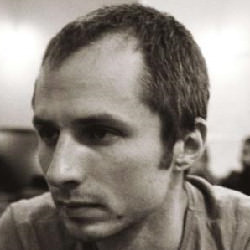Aby vám náš web dobře sloužil, používáme technologie jako jsou soubory cookies. Některé jsou nutné, bez nich by stránky správně nefungovaly. Statistické cookies nám umožní zjistit, jak náš web funguje a jak ho pro vás zlepšit. Díky marketingovým cookies vás budeme na sociálních sítích moci upozornit třeba na otevření nového programu. Váš souhlas můžete kdykoli odvolat.
Technické uložení nebo přístup je nezbytně nutný pro legitimní účel umožnění použití konkrétní služby, kterou si odběratel nebo uživatel výslovně vyžádal, nebo pouze za účelem provedení přenosu sdělení prostřednictvím sítě elektronických komunikací.
Technické uložení nebo přístup je nezbytný pro legitimní účel ukládání preferencí, které nejsou požadovány odběratelem nebo uživatelem.
Technické uložení nebo přístup, který se používá výhradně pro statistické účely.
Technické uložení nebo přístup, který se používá výhradně pro anonymní statistické účely. Bez předvolání, dobrovolného plnění ze strany vašeho Poskytovatele internetových služeb nebo dalších záznamů od třetí strany nelze informace, uložené nebo získané pouze pro tento účel, obvykle použít k vaší identifikaci.
Technické uložení nebo přístup je nutný k vytvoření uživatelských profilů za účelem zasílání reklamy nebo sledování uživatele na webových stránkách nebo několika webových stránkách pro podobné marketingové účely.

 Arnoldas Stramkas works in the Žemieji Šančiai district of Kaunas. The district has a rich history as a military, industrial and residential area, which has experienced major transformations since the fall of the Soviet Union. These transformations, however, have not taken into consideration public space needs or community organizing principles. In this context, together with a larger team, he addresses these issues through various interventions and relationship building. One of the initiatives that he co-organizes is an experiment in public space called Kiosk. In 2013 Kiosk created an improvised ‘joint-stock company’ and asked people to become shareholders of the Kiosk. At the moment, its surroundings serve as an open space, with regular flea markets, bicycle workshops, live music events and so on. The group is also starting to work on an abandoned and problematic territory with the vision of developing it into a public site to serve community needs.
Arnoldas Stramkas works in the Žemieji Šančiai district of Kaunas. The district has a rich history as a military, industrial and residential area, which has experienced major transformations since the fall of the Soviet Union. These transformations, however, have not taken into consideration public space needs or community organizing principles. In this context, together with a larger team, he addresses these issues through various interventions and relationship building. One of the initiatives that he co-organizes is an experiment in public space called Kiosk. In 2013 Kiosk created an improvised ‘joint-stock company’ and asked people to become shareholders of the Kiosk. At the moment, its surroundings serve as an open space, with regular flea markets, bicycle workshops, live music events and so on. The group is also starting to work on an abandoned and problematic territory with the vision of developing it into a public site to serve community needs.